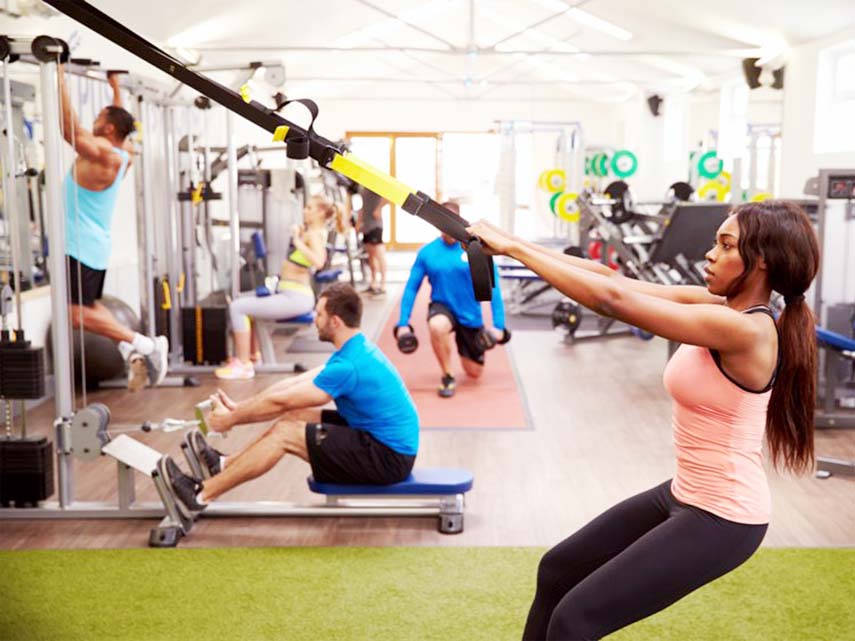
Life Desk :
Whether your heart beats faster or how your blood pressure responds while exercising all depends on your genes. The way a person’s heart reacts to exercise can also foretell any heart or blood vessel problems in the future, according to new research conducted by the University of Guelph (Canada) and published in The Journal of Physiology.
Exercise usually causes an increase in heart rate and blood pressure, a common phenomenon, but the magnitude varies for different people. Earlier studies have shown that people whoencounter abnormal increase in blood pressure levels during exercise will experience high blood pressure in the future.
‘Genetic mutations in receptor molecules of skeletal muscle cells influence the way the person’s heart rate and blood pressure respond to exercise.’
Thus, understanding why people react differently to exercise is essential to identify risk factors and conduct early monitoring or treatment for those individuals at risk.
The research measured the heart rate and blood pressure of 200 healthy young men and women before and during a handgrip exercise and analyzed their DNA for genetic risk factors. The results showed that the difference in responses might be caused by the genetic variations in receptors found in skeletal muscles. Receptors are protein molecules present on cell surfaces that bind to a drug or a hormone and initiate a change within the cell.
Scientists identified two common genetic mutations in skeletal muscle receptors that were responsible for higher blood pressure during exercise when compared to people who did not have them. The difference was more pronounced in men.
The limitations of the study included a small sample size and the use of only one specific type of exercise. However, the effect of these genetic variants in the skeletal muscle receptors was significant.
Further work will be needed to look at other types of exercise and to replicate this finding.
Philip J. Millar, the corresponding author of the study, commented on the findings of the results ‘This research suggests the presence of these receptors can contribute to larger blood pressure responses during exercise – a risk factor for future problems with the heart or blood vessels. It is important to examine why we saw this difference mainly in men, and to understand the specific mechanisms behind how these genetic variants influence their heart rate and blood pressure responses to exercise.’
Source-Medindia
Whether your heart beats faster or how your blood pressure responds while exercising all depends on your genes. The way a person’s heart reacts to exercise can also foretell any heart or blood vessel problems in the future, according to new research conducted by the University of Guelph (Canada) and published in The Journal of Physiology.
Exercise usually causes an increase in heart rate and blood pressure, a common phenomenon, but the magnitude varies for different people. Earlier studies have shown that people whoencounter abnormal increase in blood pressure levels during exercise will experience high blood pressure in the future.
‘Genetic mutations in receptor molecules of skeletal muscle cells influence the way the person’s heart rate and blood pressure respond to exercise.’
Thus, understanding why people react differently to exercise is essential to identify risk factors and conduct early monitoring or treatment for those individuals at risk.
The research measured the heart rate and blood pressure of 200 healthy young men and women before and during a handgrip exercise and analyzed their DNA for genetic risk factors. The results showed that the difference in responses might be caused by the genetic variations in receptors found in skeletal muscles. Receptors are protein molecules present on cell surfaces that bind to a drug or a hormone and initiate a change within the cell.
Scientists identified two common genetic mutations in skeletal muscle receptors that were responsible for higher blood pressure during exercise when compared to people who did not have them. The difference was more pronounced in men.
The limitations of the study included a small sample size and the use of only one specific type of exercise. However, the effect of these genetic variants in the skeletal muscle receptors was significant.
Further work will be needed to look at other types of exercise and to replicate this finding.
Philip J. Millar, the corresponding author of the study, commented on the findings of the results ‘This research suggests the presence of these receptors can contribute to larger blood pressure responses during exercise – a risk factor for future problems with the heart or blood vessels. It is important to examine why we saw this difference mainly in men, and to understand the specific mechanisms behind how these genetic variants influence their heart rate and blood pressure responses to exercise.’
Source-Medindia

